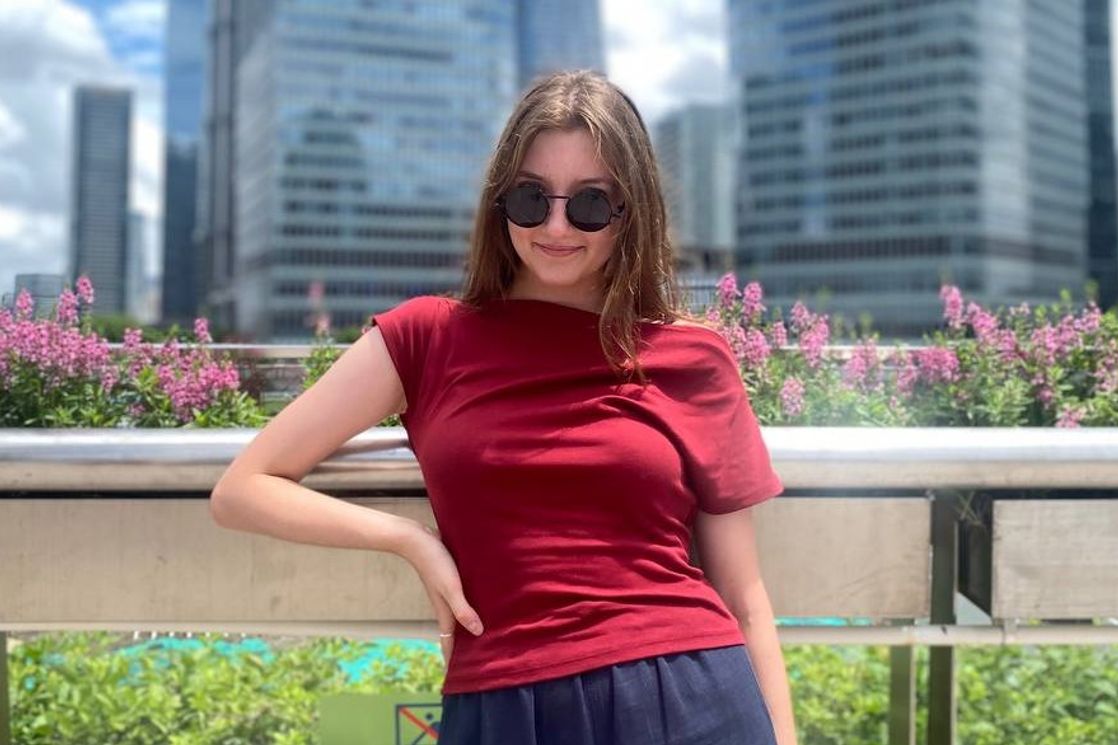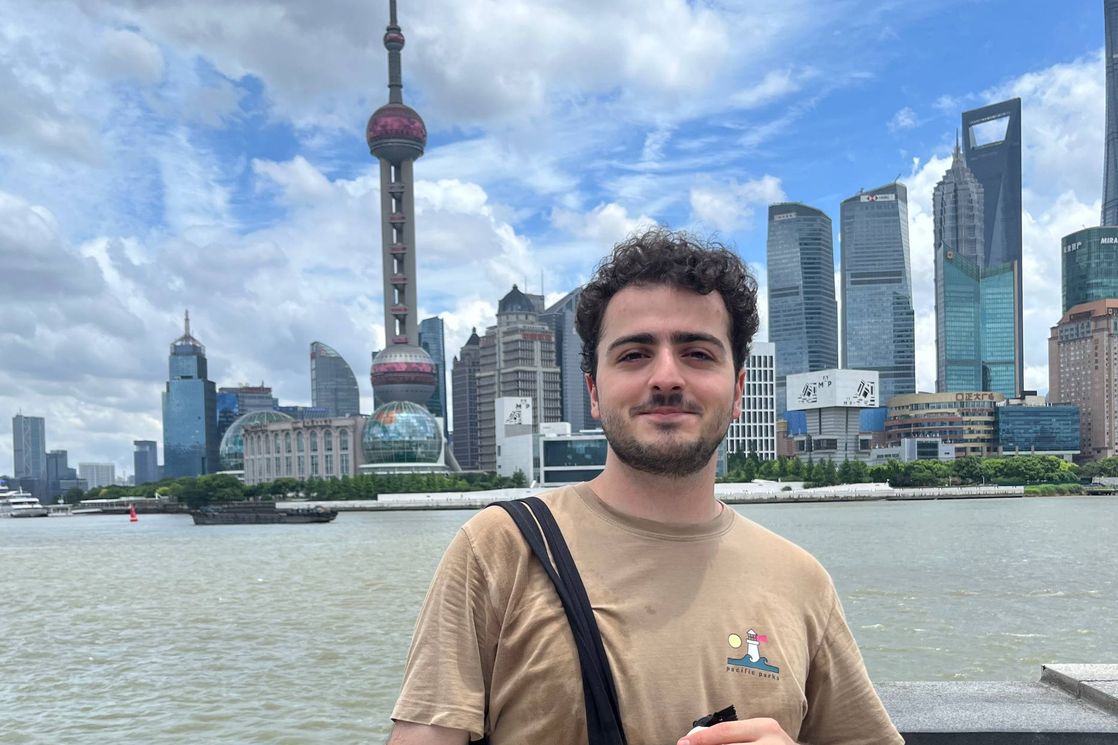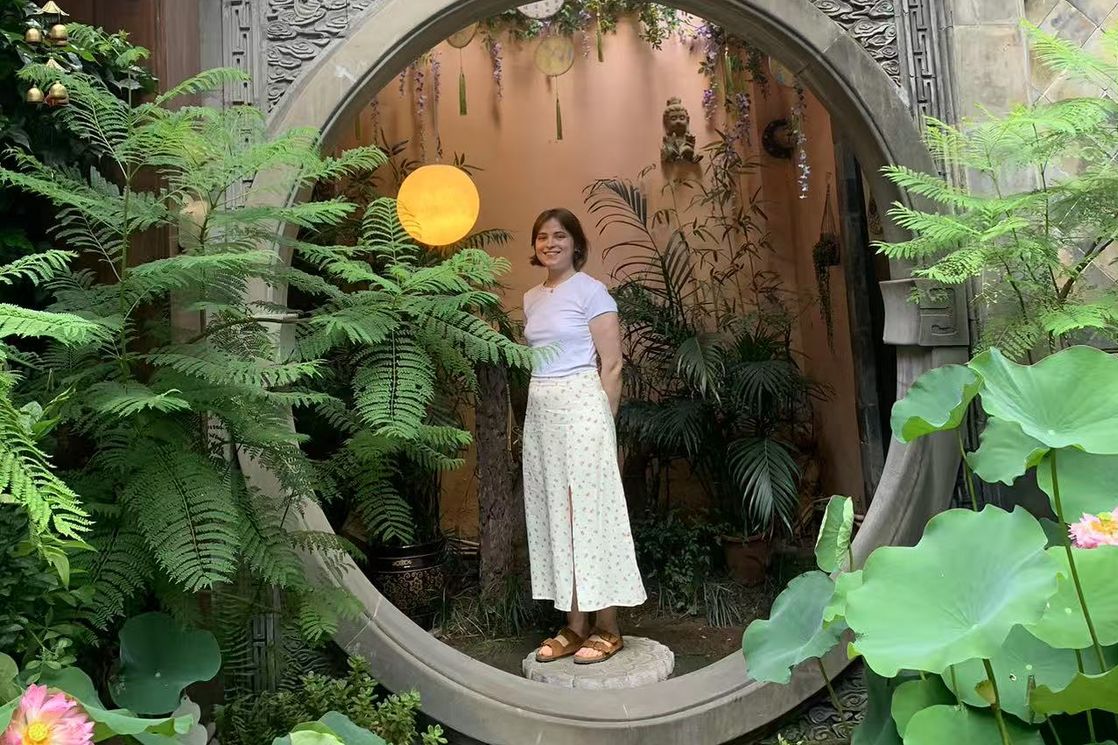‘It Was Interesting to See How Our Chinese Colleagues Work’: HSE Researchers Take Part in Hefei Summer School
This summer, Diana Sukhoverkhova, Daria Mazur, and David Kagramanyan, research assistants at the MIEM HSE Laboratory for Computational Physics, spent five weeks in China. At the Future Scientist Exchange Program (FuSEP) summer school in Hefei, they worked in new fields of science together with their Chinese colleagues. HSE's promising scientists spoke to the HSE News Service about their intense and productive time in China.
The FuSEP Summer School is supervised by one of the top technological universities in China—the University of Science and Technology of China (USTC). The university’s numerous campuses resemble small towns with shops and cafes, where students can pay with a special pass card.
The school programme included lectures and workshops on high-energy physics, chemistry, and cosmology. In addition, each participant joined a laboratory, was assigned an academic supervisor, and carried out research projects.
The participants also enjoyed an eventful cultural programme—they explored the city of Hefei, went on an excursion to Suzhou, rode Alipay electric mopeds, visited Chinese theatres, and walked around Shanghai.
All three research assistants of the MIEM Laboratory for Computational Physics are also first-year doctoral students of the Doctoral School of Engineering Science (School of Applied Mathematics). Diana Sukhoverkhova studies on the ‘System Analysis. Mathematical Modeling. Information Technologies’ programme, Daria Mazur on the ‘Condensed Matter Physics’ programme, and David Kagramanyan on the ‘Mathematical Modeling, Numerical Methods, and Software Systems’ programme.

Diana Sukhoverkhova carried out a project on the application of machine learning to classifying topological phases. ‘The idea of the project was to use my experience in applying machine learning to the analysis of phase transitions (which I do at HSE University) to the experimental data provided by the laboratory,’ said the researcher. ‘It was difficult to take in so much new information, because work on the project overlapped with the difference in time zones and cultural features that I had to get used to. But despite this, I had a lot of interesting experiences, gained new knowledge in my field, and the change of environment inspired me to continue my current research and pursue science.’

Every morning of the summer school, David Kagramanyan and his colleagues went to the Science Island at 7 am. ‘Laboratories dealing with plasma physics, machine learning, chemistry, and thermonuclear energy were located on the island,’ he said. ‘I worked at the laboratory of intelligent machines, where I solved problems of thermal conductivity for Bitter magnets using machine learning. It was complicated. For example, for the first week and a half, I was dealing with software configuration, since all the necessary programming packages were unavailable for download from foreign servers. As it turned out, China has all the necessary infrastructure for downloading and configuring software from Chinese servers. For example, the popular PyPI resource for downloading Python packages has been replaced by the Tuna service. However, despite the unusual working environment, it was interesting to see how Chinese colleagues work, and share experiences with them.’

This was not the first trip to China for Daria Mazur—last year she went to Qingdao for the InterPore conference. ‘I was familiar with the country, from food and communication to technology like WeChat. During the programme, I carried out a project on modelling the properties of an alloy using molecular dynamics methods. The task included both modelling the ‘box’ in which the alloy is put, and applying machine learning methods to create a potential that would describe the system. In addition, I managed to work on my Moscow tasks (in particular, finishing an article). I also achieved another goal related to China—I visited the largest city in the world, Chongqing. The trip left me with a lot of positive memories and interesting acquaintances.’
See also:
‘Keep Working, Keep Publishing—Consistency Matters’
Ziyuan Zhu, from Beijing, China, is an international PhD student at the Institute for Public Administration and Governance at HSE University in Moscow. In this interview with the HSE News Service, Ziyuan talks about how studies can influence one’s outlook on life, comparing public service models in different countries, and why being a Chinese student in Russia is advantageous in research.
Under a Blooming Magnolia: How Russian and Chinese Scientists Create Solar Cells of the Future
Schola continues to introduce the winners of the International Academic Cooperation competition. In today's issue, Professor Andrey Vasenko, Deputy Head of the Scientific and Educational Laboratory of Quantum Nanoelectronics at Tikhonov Moscow Institute of Electronics and Mathematics (MIEM), speaks about the joint project between his laboratory and the Peking University research team— ‘Engineering of highly efficient and stable perovskite solar cells.’
Physicists Propose New Mechanism to Enhance Superconductivity with 'Quantum Glue'
A team of researchers, including scientists from HSE MIEM, has demonstrated that defects in a material can enhance, rather than hinder, superconductivity. This occurs through interaction between defective and cleaner regions, which creates a 'quantum glue'—a uniform component that binds distinct superconducting regions into a single network. Calculations confirm that this mechanism could aid in developing superconductors that operate at higher temperatures. The study has been published in Communications Physics.
'Even among Geniuses, Luck Plays a Role in Winning a Nobel Prize'
Denis Bodrov studies particle physics and works at one of the four electron–positron colliders in the world. In this interview with the HSE Young Scientists project, he talks about his efforts to go beyond the Standard Model, discusses tau leptons, and shares his affection for Moscow.
Graduate School of Business MBA Students Take Part in Offsite Module in China
MBA students of the HSE Graduate School of Business HSHSE have recently completed the international component of their studies at the School of Economics and Management at Tsinghua University. The module focused on developing business through innovation. The participants discussed the impact of new technologies on corporate structures and visited companies operating in robotics and renewable energy.
Physicists at HSE University Reveal How Vortices Behave in Two-Dimensional Turbulence
Researchers from the Landau Institute for Theoretical Physics of the Russian Academy of Sciences and the HSE University's Faculty of Physics have discovered how external forces affect the behaviour of turbulent flows. The scientists showed that even a small external torque can stabilise the system and extend the lifetime of large vortices. These findings may improve the accuracy of models of atmospheric and oceanic circulation. The paper has been published in Physics of Fluids.
Meeting with Xinhua Delegation: Discussion on Contemporary Journalism at HSE
On October 22, 2025, HSE University hosted an open meeting with representatives of the Chinese news agency Xinhua, led by Sun Zhiping, Chief of Staff to the Director General. Participants discussed current challenges in journalism and the operational specifics of news agencies in today’s media landscape. Many students took the opportunity to ask questions and practise speaking Mandarin. The visit was organised by the Faculty of World Economy and International Affairs in collaboration with the HSE Institute of Media and the TASS news agency.
HSE Participates in Conference on International Exchange of Professionals in China
From October 21 to 24, 2025, the 23rd Conference on International Exchange of Professionals took place in Shanghai and Beijing, bringing together more than 7,000 scientists and experts from around the world. HSE University was represented by Ivan Arzhantsev, Dean of the Faculty of Computer Science, and Vasily Gromov, Head of the Laboratory for Semantic Analysis of the Centre for Language and Semantic Technologies.
New Method for Describing Graphene Simplifies Analysis of Nanomaterials
An international team, including scientists from HSE University, has proposed a new mathematical method to analyse the structure of graphene. The scientists demonstrated that the characteristics of a graphene lattice can be represented using a three-step random walk model of a particle. This approach allows the lattice to be described more quickly and without cumbersome calculations. The study has been published in Journal of Physics A: Mathematical and Theoretical.
Works of HSE Art and Design Students Presented at Pingyao International Photography Festival
On September 19, the 25th Pingyao International Photography Festival (PIP) opened in Pingyao, Shanxi Province, China. The exhibition features the works of 16 students of the Faculty of Creative Industries at the HSE Art and Design School, selected following the results of the HSE Creative Open / Photoproject international competition, which received more than 300 entries.


